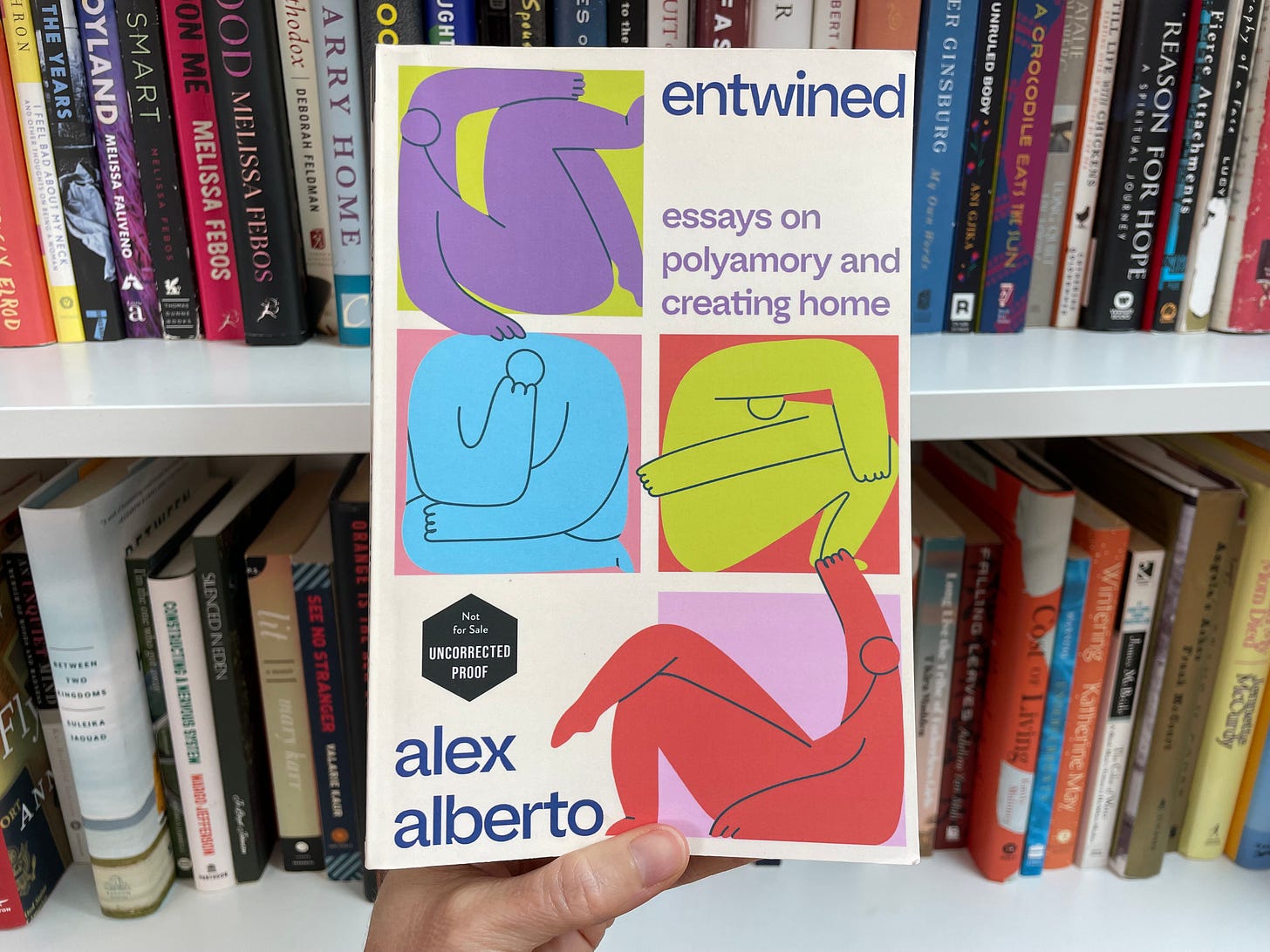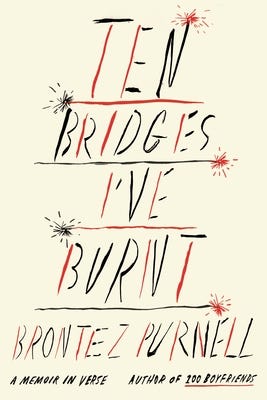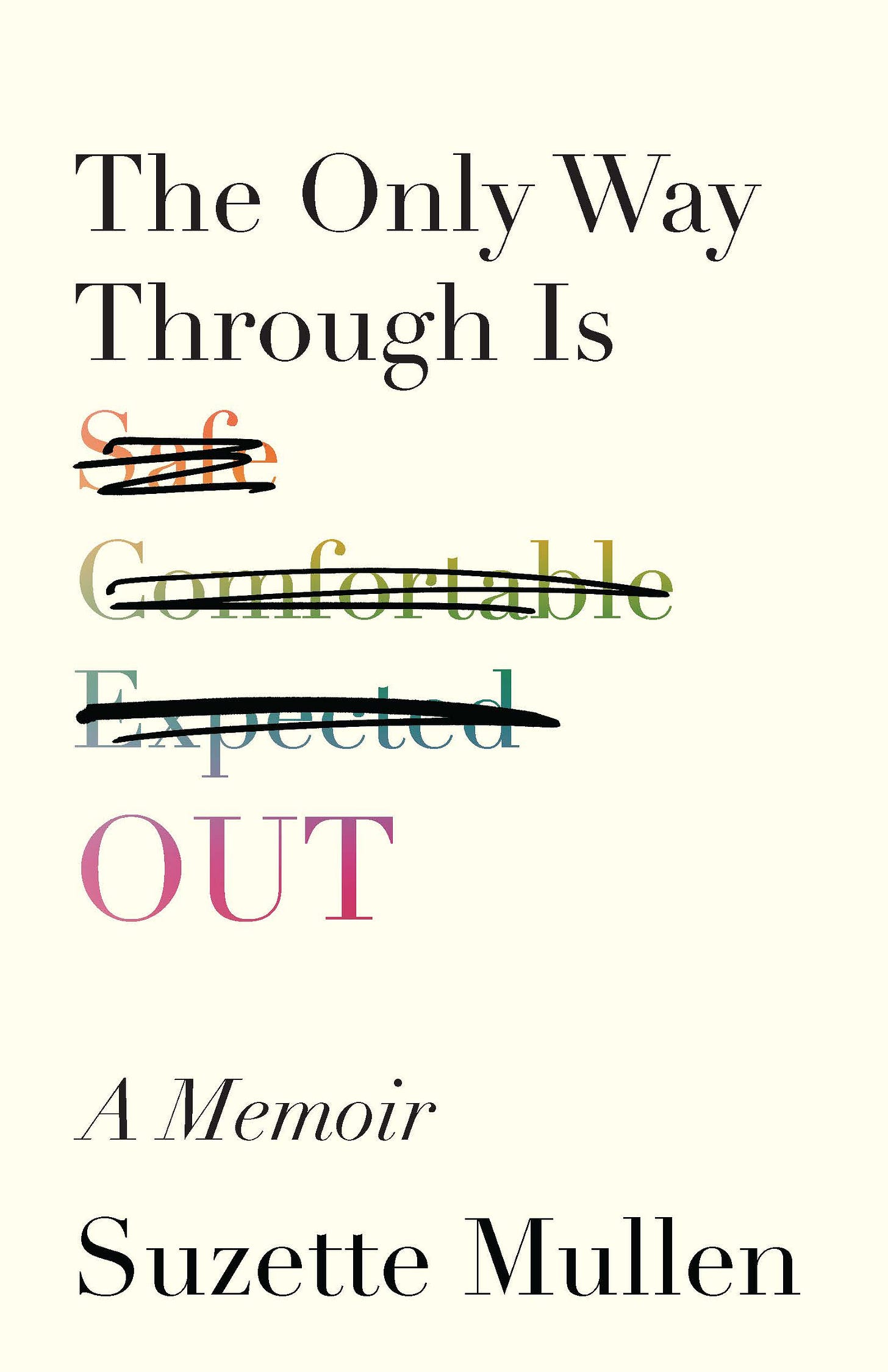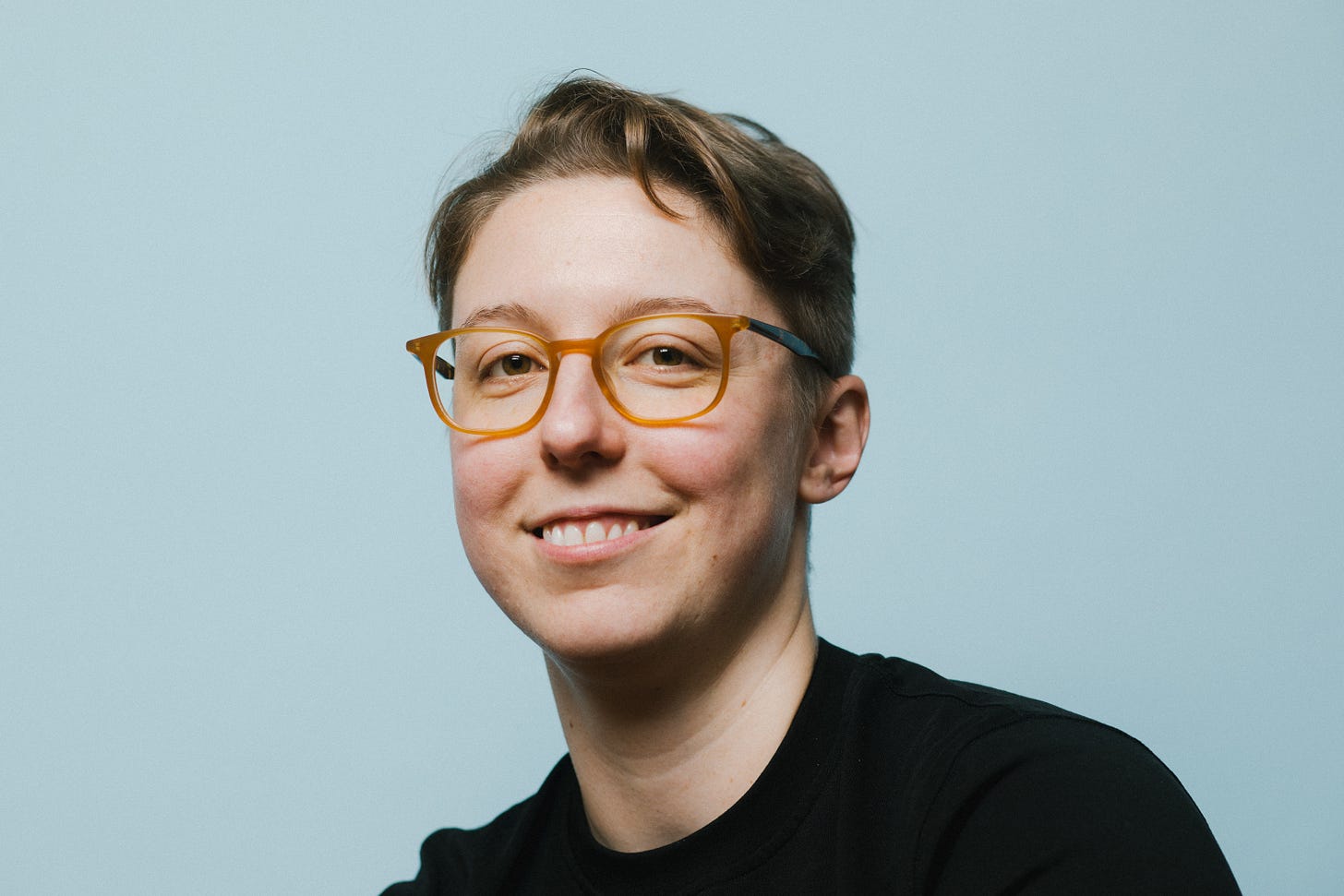Entwined: Essays on Polyamory and Creating Home, by Alex Alberto
NEW INTERVIEW! Plus two more memoirs by queer authors
Memoirs with Melissa shares twice monthly reviews intended to expose readers to diverse authors and life experiences. I welcome and value every free subscriber. Paid subscriptions are an extra way to support my work in elevating the canon of human experience. Thank you!
Valentine’s Day is behind us, dear readers, which makes the time ripe for this book of personal essays devoted to resisting our cultural narratives about love. Do you tend to think of monogamy and polyamory as binaries? Does polyamory seem like a foreign language that doesn’t apply to you? No matter your relationship preferences, I challenge you to consider what Alex Alberto has to offer in the pages of Entwined: Essays on Polyamory and Creating Home.
Part of what I love about this book is how I came to find it. I stumbled onto the cover in an Instagram post from the author, who happens to be one of my early subscribers. We’ve never met in person, but our virtual connection has rippled into the material world. I requested a galley. They let me know that my interview with Jessi Hempel, author of The Family Outing, impacted their gender journey (see more on this in my interview with Alberto below). Now Alberto’s book is published with a mention of Hempel’s memoir inside and a blurb from me on the back cover. As someone who works in the abstract world of creativity and online media, I cherish these tangible, concrete manifestations.
Alberto’s book is an entertaining and enlightening read. Like relationship models, the chapters have such fun variety in content and structure. At the same time, the essays are deepening my understanding of polyamory’s possibilities beyond the dominant cultural perception of it being a practice filled with swinging and sex parties. (No judgment intended from me or the author toward those who indulge in “The Lifestyle.”)
Like relationship models, the chapters have such fun variety in content and structure.
Most of us are not even taught the basics of how to have one successful relationship, let alone multiple, notes Alberto. That’s one of the many reasons every reader has something to learn from this author’s evolving journey with polyamory, gender, and family. I especially appreciate how they blur the boundary between friendship and romance. In their time with Aly, a notable character in the book, they let their relationship be what they each want it to be instead of forcing it into a defined category. Alberto also acknowledges that sex is not the only form for the erotic. It can also take shape in daily activities like growing and cooking food, conversation, giving small gifts, and sharing creative pursuits.
The Q&As at the back of the book are where Alberto shares their unique perspectives on relationship challenges common to folx in all sorts of relationship models, including monogamy. If you’re looking for tips on boundaries, communication, and creative solutions, you’ll find much to consider there and in their forthcoming Substack, Entwined Mag.
…sex is not the only form for the erotic. It can also take shape in daily activities like growing and cooking food, conversation, giving small gifts, and sharing creative pursuits.
One final thing that makes this book so intriguing is its unique path to publication. Alberto is one of three co-founders of Quilted Press, a new publishing collective recently highlighted by writer and editor extraordinaire Sari Botton in her article The Sustainability and Sanity of Print-On-Demand. Quilted Press is also experimenting with a unique and innovative system of blurbing that relies on contributions from both authors and readers. Anyone familiar with the problematic blurb system knows we’re way overdue for alternatives.
In so many ways, I have mad respect for Alberto’s willingness to forge their own path with creativity and authenticity. For more from this author, be sure to read our interview that follows the other two lovely books in this post.
Two More Memoirs by Queer Authors This Month
1. Ten Bridges I’ve Burnt: A Memoir in Verse, by Brontez Purnell
As a memoir connoisseur, I was curious about this collection of autobiographical poems. “I’m Bloody by Nature, Not ‘Cause I Hate Ya” is the poem that sold me. With humor and stark confessions, Purnell uses blood as a metaphor to examine human behavior and the idea of fault. Basically, it’s complicated.
Ten Bridges in the title symbolizes the 100 bridges he’s built versus the ten he’s burnt that stick in his critics’ minds. Perhaps one of those burnt bridges was Tommy Chin? A poem by the same name describes a spectacular altercation at the San Francisco Young Gay Poets Luncheon. “Point Nemo” offers an achingly beautiful perspective on what it might feel like to be in the midst of a depressive episode. “If I Had a Time Machine, I Would Kill My Parents…” addresses the complexity of family dynamics and intergenerational trauma with plenty of wit thrown in. New words that will forever stick in my mind: guy-o-logical clock and pre-traumatic stress syndrome.
This was a great introduction to a new-to-me, accomplished writer. Thank you to NetGalley and the publisher for the opportunity to read.
2. The Only Way Through is Out, by Suzette Mullen
What happens when one spouse uncovers a sexual identity different than what they believed themselves to be when they entered marriage?
New York Times Tiny Love Stories contributor Suzette Mullen reveals how she navigated her later-in-life discovery with bravery and authenticity in this memoir that reads like a novel. I cried for the heart-wrenching changes to her long-standing relationships and cheered as she forged paths to new versions of community, friendship, and love.
What a great read for anyone peering over the edge of the unknown, especially when they thought their future was set. Thank you to University of Wisconsin Press for the advance reader copy.
NEW INTERVIEW! A Conversation with Alex Alberto
You’ve told me that The Family Outing by Jessi Hempel was pivotal in your journey with gender. Is there a line or scene from that memoir that triggered a shift in your understanding of yourself?
Yes, and I discovered the book through your Substack, so thank you!
Early in the book, Hempel explains that throughout the story, she’ll use he/him pronouns to describe her brother, and won’t use his dead name—even when talking about the time before he was out as trans. At first, she thought it would be hard to describe her brother as a child this way. But, over time, she began to refashion history with her brother, and focus on the emotional truth of who he had always been.
It had been so hard for me to face my gender identity because I feared it would somehow erase the years I’d had with one of my partners, and my childhood for my parents. Reading how someone was able to do that for a sibling unlocked something in me. It even allowed me to refashion my own history.
You’re not only striving to create a life outside heteronormativity. You’re also working to create a life outside capitalism. What steps have you taken to push that vision closer to reality?
Living outside of capitalism while still functioning in the world is practically impossible. So my approach is to look for ways to bolster mutual aid networks and collectivize resources with others. I own my house with a life partner and two close friends. We’re hoping to invite more people to come co-live with us. We’re taught to aspire to dwelling with one partner and that living that way is what success, security, and stability look like. That’s how we know we’ve “made it.” It’s just not true. That nuclear model has given rise to a loneliness epidemic and widespread financial stress. We kind of forgot how to share in this increasingly individualistic world. And sure, sharing can be hard at first. But like I say in my book: “Polyamory taught me to share romantic love and sex, which culturally, are the most dangerous things to share. Once I learned how to do that, I started seeing the potential for creating abundance everywhere.”
Another example is Quilted Press, the collective of independent authors I co-founded with Caroline Shannon to publish my book. Eventually K.G. Strayer joined us, and their book, Stellar Nursery: On My (Trans) Body and My Choice just came out at the same time as mine. We created Quilted Press to pool the resources of three individual artists to publish books that wouldn’t ultimately line the pockets of shareholders in a publishing conglomerate. I’m trying to train myself to see where some portion of the value of art, labor, whatever is being captured by capital, and then refuse to participate.
As authors, we keep all rights to our books, and profits go back directly to us. We were able to help each other finish our manuscripts, fundraise to cover the cost of designers, printing, and some marketing, and now we each can sell our books as fully independent authors. My marketing team consists of a current partner, our former partner, and my current partner’s partner (haha, that’s a mouthful—suffice to say, it’s a polycule marketing team). Nobody is going to get rich off these books, but no one is being exploited either, and that feels radically consistent with the message of our books and the lives we’re trying to lead.
I resonated with your thoughts on polyamory and parenting. Even as a person who is in a monogamous partnership, I have a positive co-parenting situation with my kids’ father and his partner. It’s complicated at times, but also provides incredible support. The idea of getting to that place without the drama of divorce is appealing. How might polyamory help us reimagine our approach to parenting?
When I began exploring polyamory, I was focused on the ability to develop multiple romantic and sexual relationships. But over time, it became a new way to approach all my relationships, including friendships. I realized I was taught to center (the one) romance in my life, and that friendships should fall lower in the hierarchy of relationships. Polyamory helped me redefine what a life partner is, and that it can include friends and platonic relationships. It gave me new scripts to make commitments with people outside of romantic relationships, and helped me develop the level of communication needed to nurture those relationships.
So when it comes to people reimagining their approach to parenting, they can consider new types of life partners who can have a significant role in their children’s life in a way that is intentional and negotiated. Monogamous people can absolutely do that. Non-monogamy isn’t what makes this possible, but I think a “polyamorous lens” can help us think more creatively about the village we want to build around our children.
How can readers best support your creative life?
First, you can buy the book.
Ordering it from my website is the best way to directly support me. It’s available everywhere else you buy books online for your convenience, but some of those big corporate retailers exploit creative workers and keep the majority of the profit. So when you can, buying direct from an artist is always so appreciated.
You can also ask your local indie bookstore to order it. It’s a great way to support them, and also allow other people to discover the book.
You can help spread the word!
If you read the book, leave a review on Goodreads, The StoryGraph, and everywhere you buy books.
Even if you don’t buy the book, tell your friends about it! The number-one reason people buy books is they know of the author (thank you, Melissa!), and the number-two reason is a friend directly recommended it.
Connect with me.
Sign up for my mailing list.
Subscribe to my new Substack.
What is your favorite memoir?
Ugh, you’re asking a polyamorous memoirist to pick one favorite memoir? I love SO many, so I’ll use this space to talk about another Quilted Press memoir, Stellar Nursery: On My (Trans) Body and My Choice by K.G. Strayer. It’s about their struggle for bodily autonomy as a trans/nonbinary person, from abortion to top surgery. It’s written in short little vignettes, and it made me feel both seen and hugged, and also broke bits of my heart in an all too familiar way. I’m of course biased, but I highly recommend it.







